-
Car Reviews
- All reviews
- Midsize SUVs
- Small cars
- Utes
- Small SUVs
- Large SUVs
- Large cars
- Sports SUVs
- Sports cars
- Vans
Latest reviews
- Car News
-
Car Comparisons
Latest comparisons
- Chasing Deals
It’s impressively efficient and is light weight, but is Suzuki’s new Swift Hybrid good enough to out-gun the best-selling and newly revised MG3?
The new Suzuki Swift boasts big gains in refinement over the previous model, is impressively efficient and is a staunch reminder of how good small cars can be.
That’s even if the “Hybrid” badge on the back is a little cheeky if you ask us.
Technically speaking, this new Swift is no Toyota or Hyundai hybrid. Instead, it’s a ‘mild hybrid’, meaning it’s got a much smaller battery and far more limited electro-functionality than popular series-parallel designs. Still, it claims to save fuel and technologies that do so are welcome in our books.
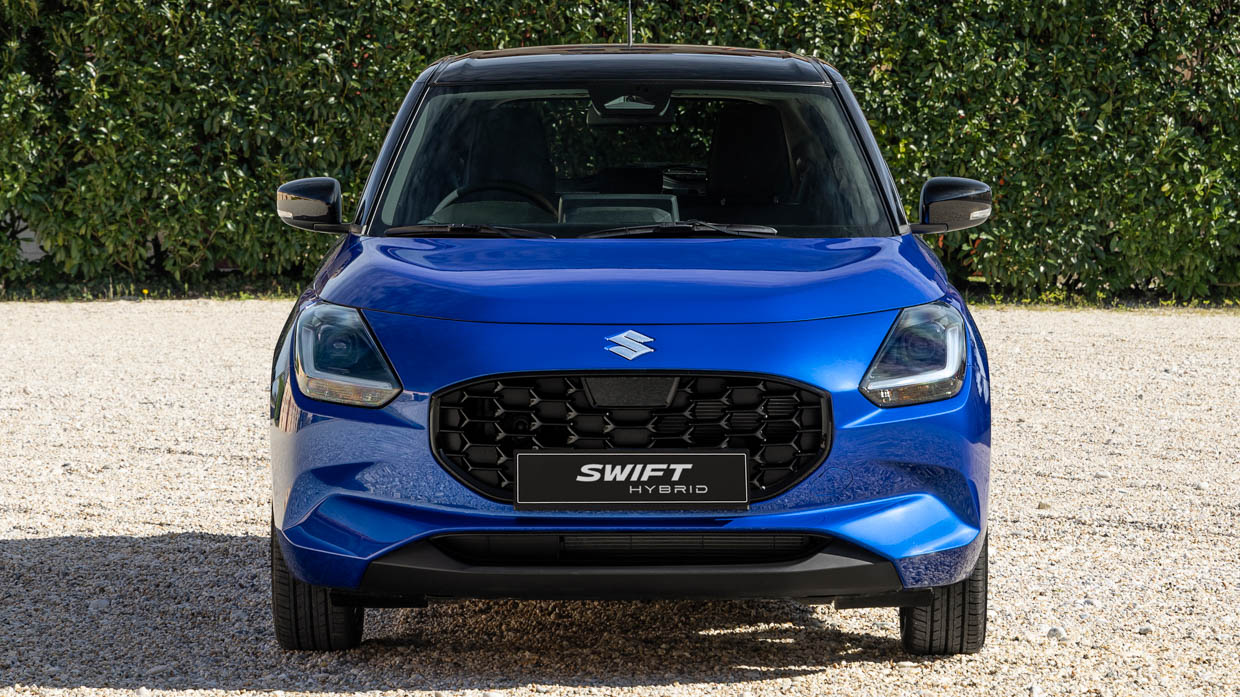
First introduced in Australia in 1988, the Swift nameplate is now in its fourth generation in 2024 with this all-new model. It’s the same 1735mm width as the old one, and rides on the same 2450mm wheelbase – although it’s 20mm longer (now 3860mm) and 25mm taller (now 1520mm).
The new Swift competes in the small car class in Australia – a sadly shrinking segment as buyers are upsold into small crossovers and SUVs. Competitors in the small car class include Mazda2, Toyota Yaris and the MG3. Many others such as Honda Jazz, Ford Fiesta, Renault Clio, Hyundai i20 and Kia Rio are now long gone from sale.
The Swift’s arch nemesis today is the MG3 and a new one of which has just landed in Australia. MG is also offering this vehicle – Australia’s best-selling small car – in a hybrid format, claiming fuel use comparable to the Swift Hybrid. Notably, however, at 155kW the MG rival has more than twice the power.
A direct comparison will be fascinating given the previous MG3 attracted so many customers on price alone. The new hybrid MG3 range starts from $27,990 (before on-road costs), meaning Suzuki has priced its mild-hybrid Swift slightly cheaper than its Chinese-made foe.
Chasing Cars tested the new Swift Hybrid on the roads around eastern Melbourne, Victoria.
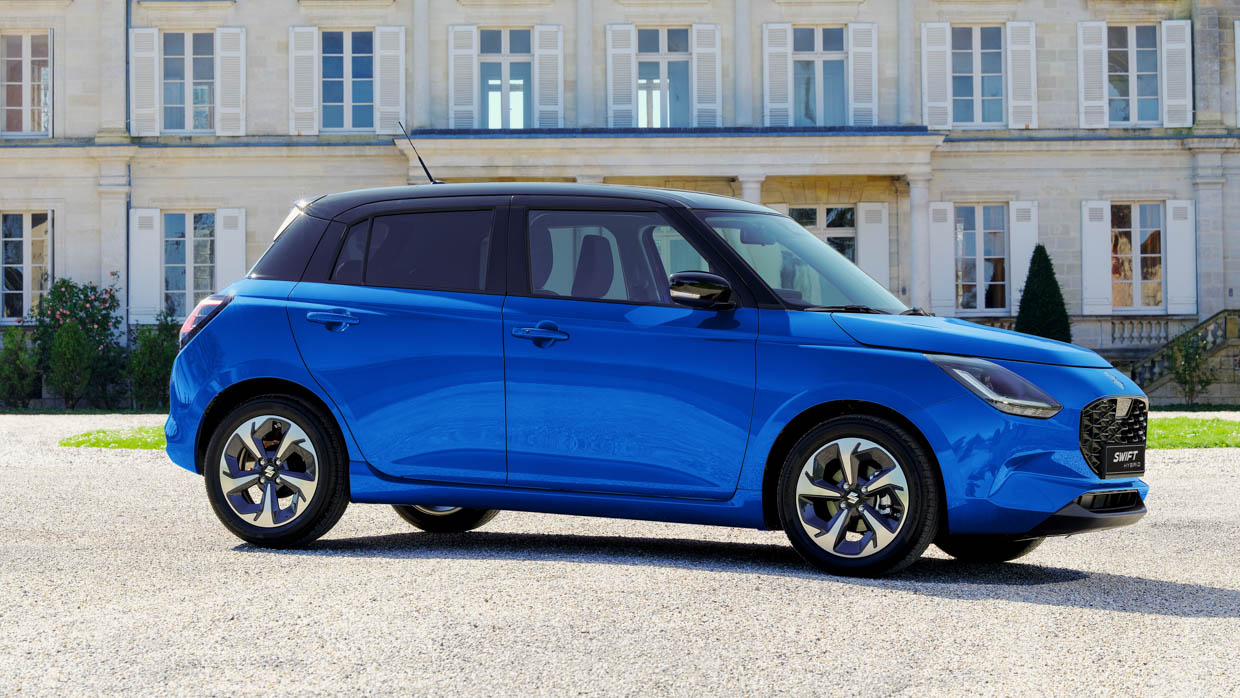
There are three Swift Hybrid variants: the base, the Plus and the GLX.
For $24,490 drive-away, the base Swift Hybrid comes with:
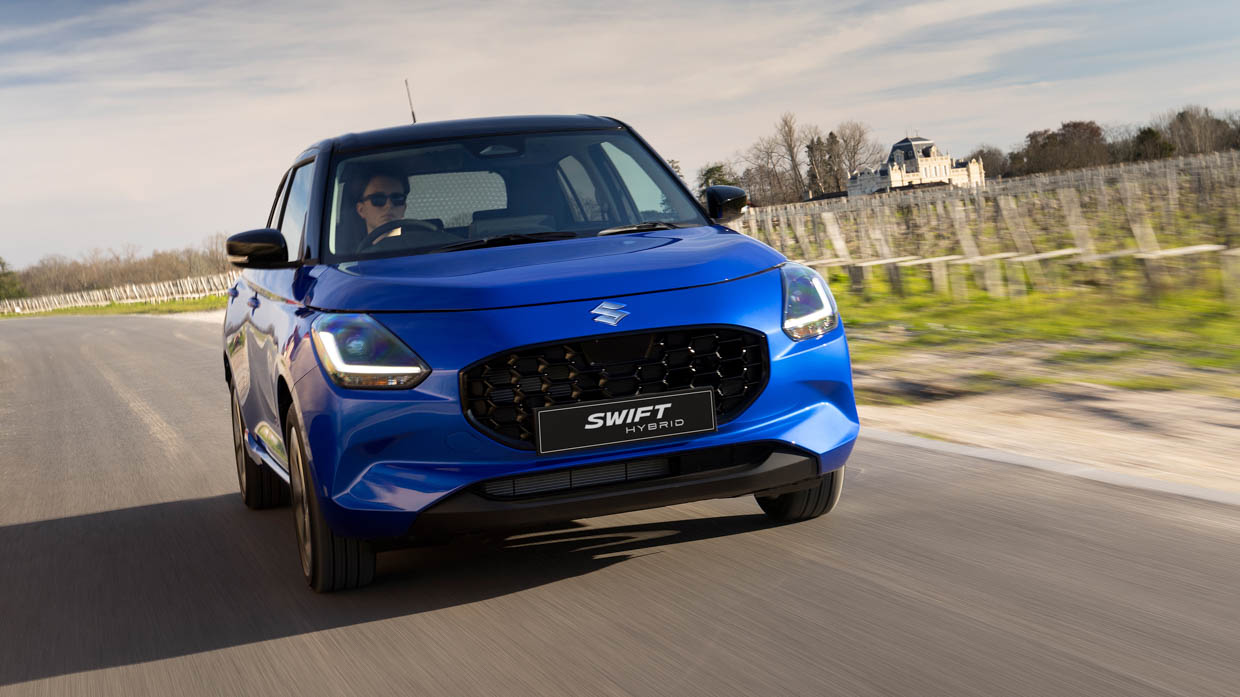
An additional $2500 buys you an automatic constantly variant transmission (CVT).
For $28,490 drive-away, the Plus adds:
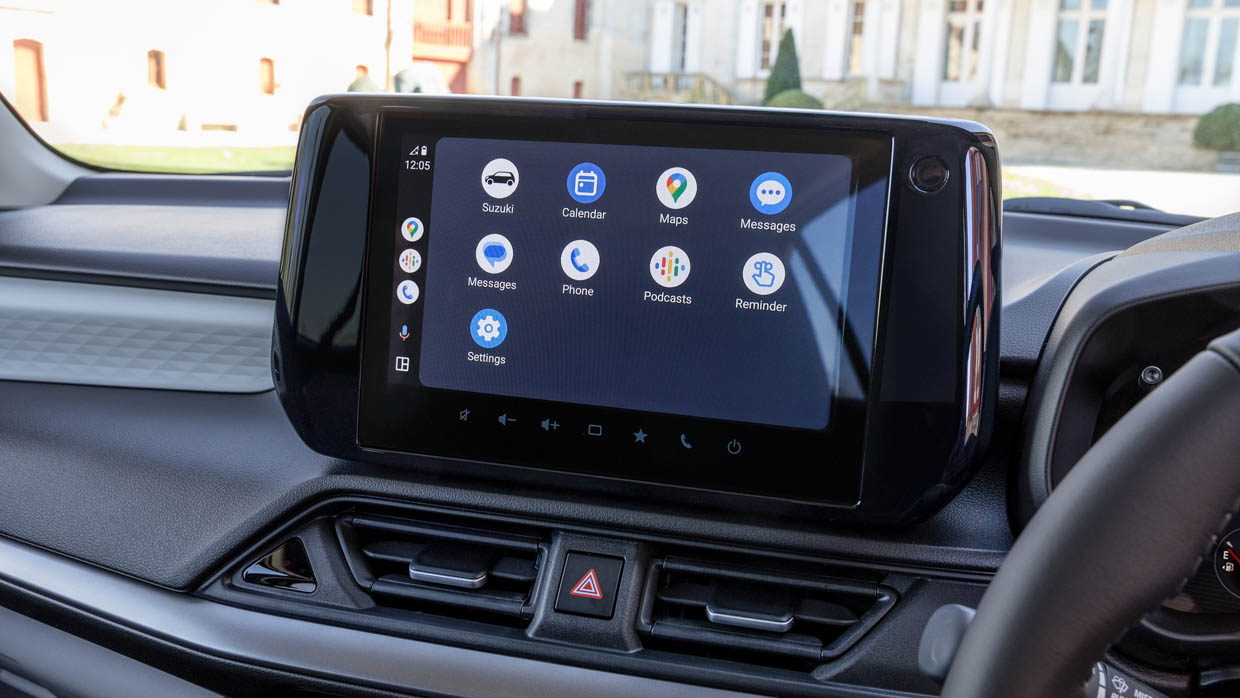
At $29,490 drive-away, the GLX adds:
Suzuki will paint your Swift in white as part of the price, but any other colour – including the cool Frontier Blue Pearl with Black Roof – is an extra $595.
The Swift Hybrid doesn’t come with connected services (in other words, a smartphone app to control the car remotely).
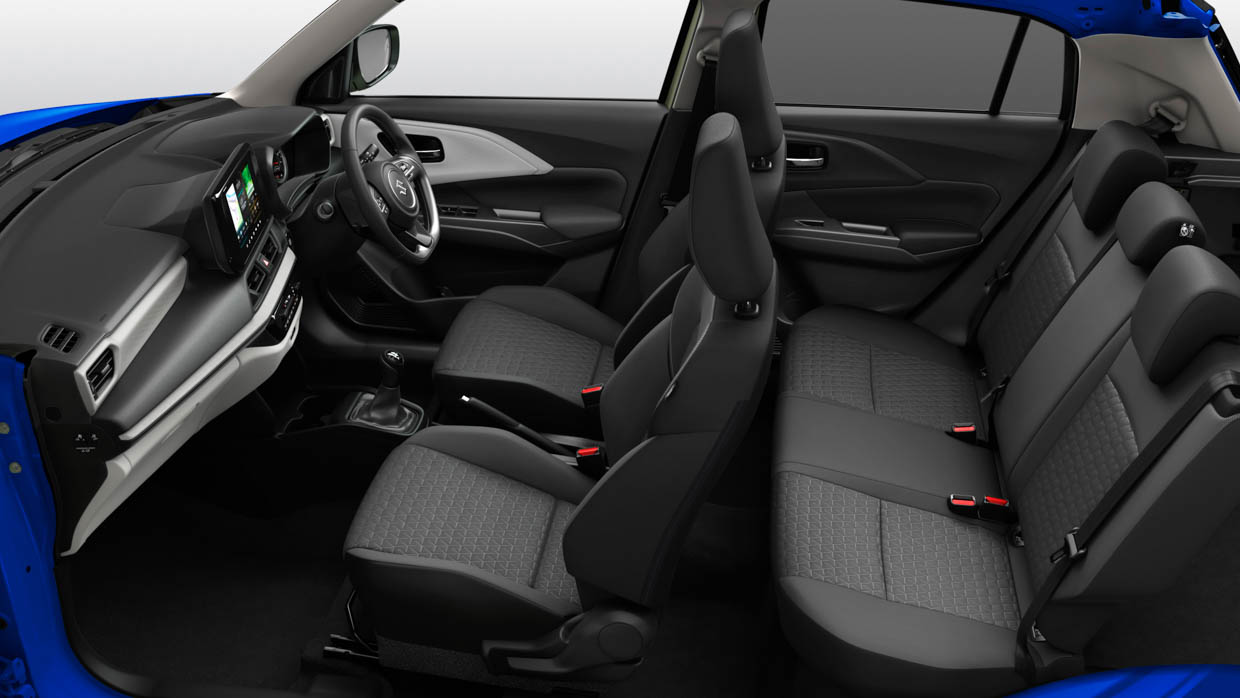
The new Swift is very easy to drive, even a little bit fun. That’s even if it’s still a bit crude for refinement by modern car standards, and quite slow.
The first thing you notice is it’s a nice, small, compact car. The average lane feels lovely and wide, and getting around carparks is just easier owing to the car’s smaller size.
The steering and other major controls are light and easy to use. The unusually vertical, flat windscreen is also kind of fun, and reminds us of driving a car a lot older in a throwback sort of way.
The three-cylinder engine has lots of character, sounding quirky and cool. That’s even if it’s not the most refined engine in the world.
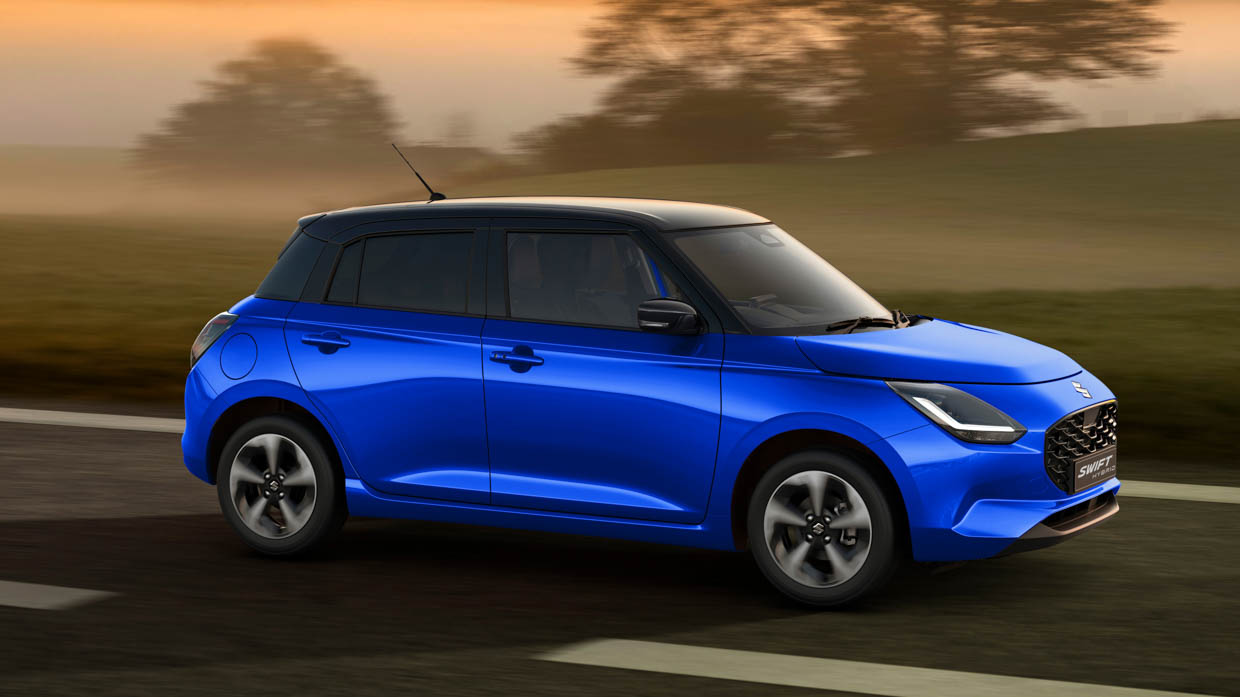
The inherent harmonics of three-cylinder engines don’t necessarily lend themselves to buttery smoothness. There’s a bit of vibration from the engine at times, and a bit of crudeness. But we’re sure some owners won’t notice nor perhaps care.
It’s a slightly noisy engine as well, especially if you’re labouring up hills. And labour you will as the Swift, with its 61kW and paltry 112Nm, isn’t going to win many drag races. Or any.
Despite the “Hybrid” badge on the back, this is no Toyota or Hyundai hybrid – systems which can operate the car on electricity alone for short periods and achieve much better efficiency. The Swift almost always operates with its engine on, with no coasting ability – or any EV-only motoring, not even for a short moment moving away from a red light, or in a carpark.
The Swift is more of a conventional petrol car with a very good stop-start system and maybe the smallest amount of electric motor torque just as you’re getting into the throttle. But in terms of hybridisation, that’s about it. That said, the starter-generator can offer up to 60Nm of torque.
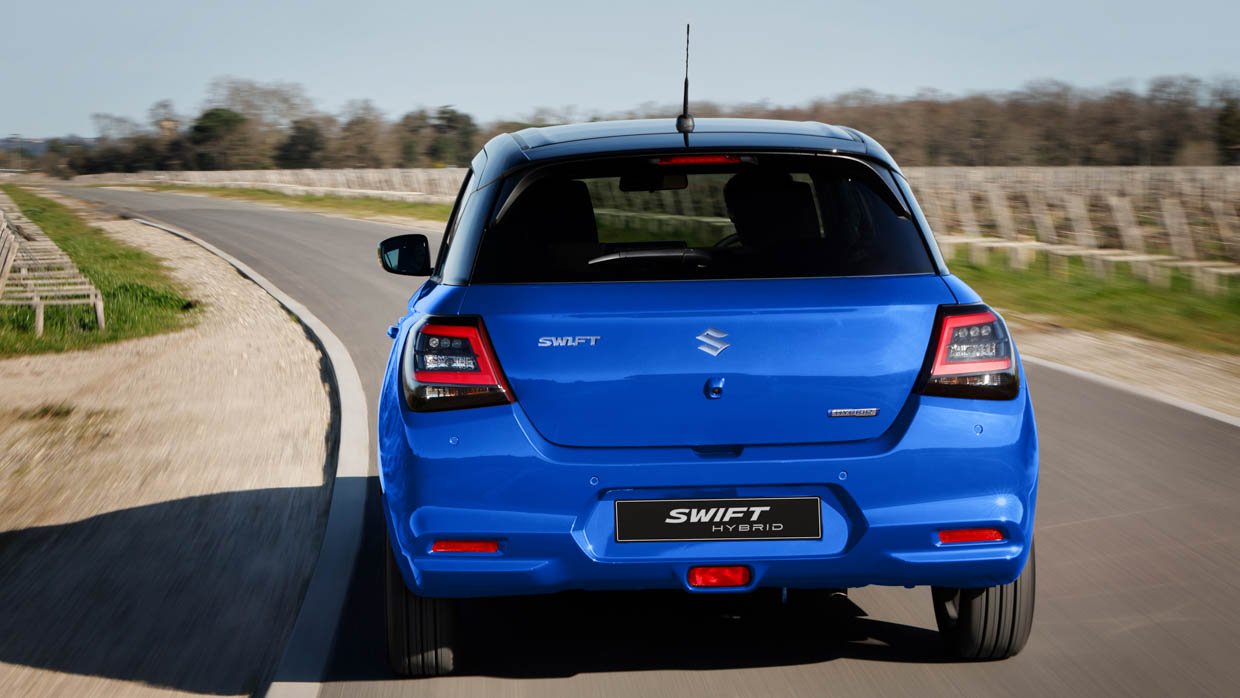
Suzuki seems to have made the Swift quieter in terms of road and tyre noise, though compared to most other larger cars, it’s merely improved from ‘poor’ to ‘average’. Small cars can be a bit noisy though, it must be said.
Find a few corners and the new Swift is delightfully light on its feet, owing to the fact it weighs a remarkably light 957kg. The manual, base model Swift Hybrid weighs just 919kg – that’s how much cars weighed in the 1980s, with significantly less safety and equipment. Amazing work, Suzuki engineers!
The lighter weight – this would be one of the lightest new cars on sale – means Suzuki didn’t have to work too hard to give the Swift a decent ride and handling balance. The ride quality is pretty good, while the new Swift is also just light and fun in things like roundabouts, where it turns eagerly and effortlessly.
We didn’t get the chance to test the dynamic limits of the new Swift but despite its featherweight status, expectations would still be tempered somewhat given all models are on Torsion beam rear-ends and with drum rear brakes. Some of the engineering at play is quite rudimentary.
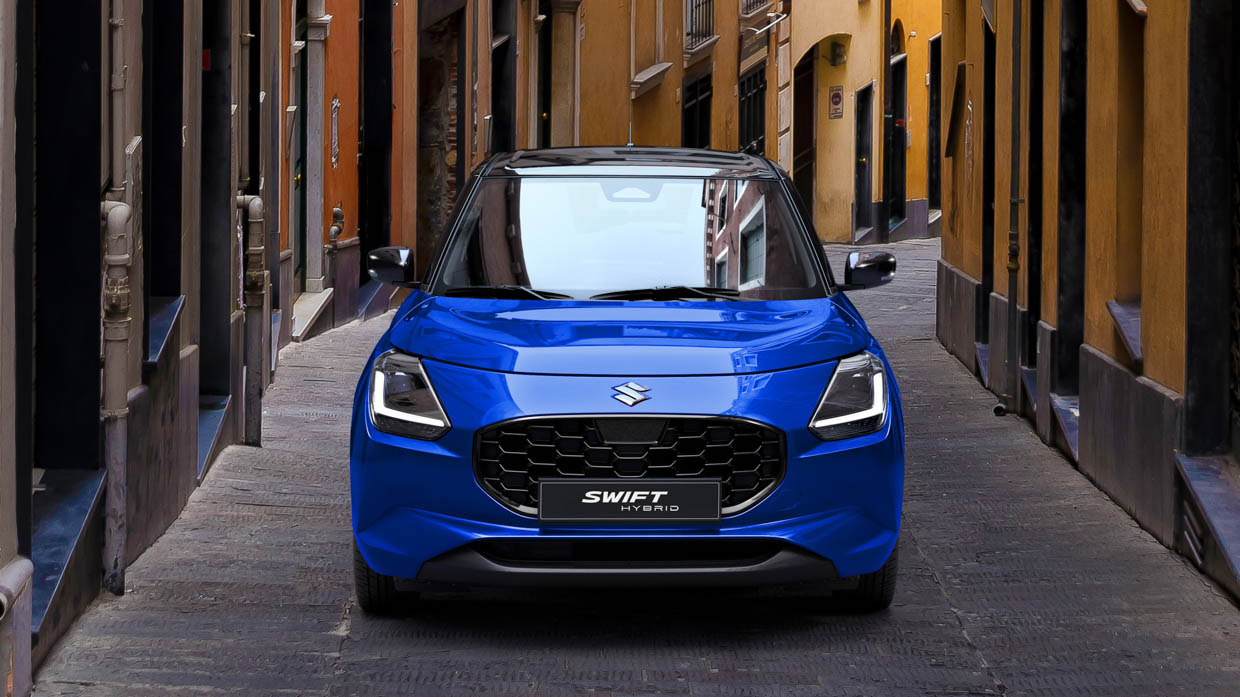
The new Swift’s interior is notably spacious for the size of vehicle, and it’s reasonably well-appointed – although you do notice the budget philosophy creeping through, even on the top-spec GLX, our test car for the day.
Jumping inside, the doors themselves are quite light and thin, and the entire door-card is hard, scratchy plastic, even on the GLX. No soft door-toppers here. The entire dash is budget-grade, hard plastic, too. Aside from a bit of padding for your elbow on the door, there are no soft trimmings anywhere at all.
The GLX’s front seats are also fully manual with cloth upholstery. Basically, the Swift’s interior will look great in brochures and through the side window, but it’s mostly cheap to the feel and touch. On area of relief is the lovely leather-trimmed steering wheel.
Visibility is good from the driver’s seat, although it’s curious to see fully analogue dials – a bit of a throwback item in an age where most manufacturers are new fitting digital instrument clusters, even in budget-level models. Screens, you see, are becoming affordable inclusions.
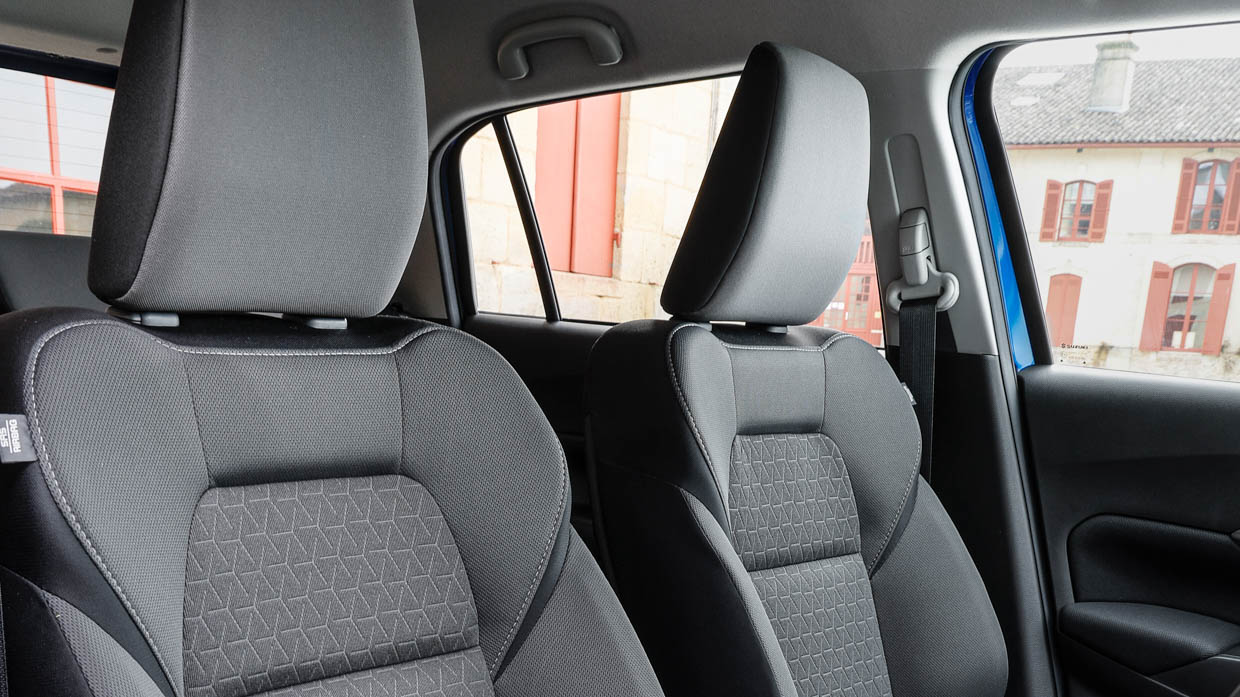
There is a screen in the centre of the dash at least – a central seven-inch infotainment touchscreen that sits high and proud. It supports wireless Apple CarPlay (and wired Android Auto) and it’s generous of Suzuki that even the base Swift gets in-built satellite navigation.
The lack of a volume dial – and no volume rotary on the steering wheel – might perturb some potential buyers, however. Instead, you have to tap away at a little tactile-less icon below the central screen.
The Swift’s interior is at least quite spacious for a small car. There’s plenty of shoulder room for front occupants while headroom is comical – you won’t have to remove your favourite fascinator for the drive to Cup Carnival in your new Swift.
Space in the back is also pretty good even for an adult, with good knee-room and foot-room (even if headroom might get tight for taller occupants). There’s no centre armrest and no rear air-vents – continuing the dollar-saving-at-every-opportunity theme – although the interior is so compact the front air-vents would probably suffice.
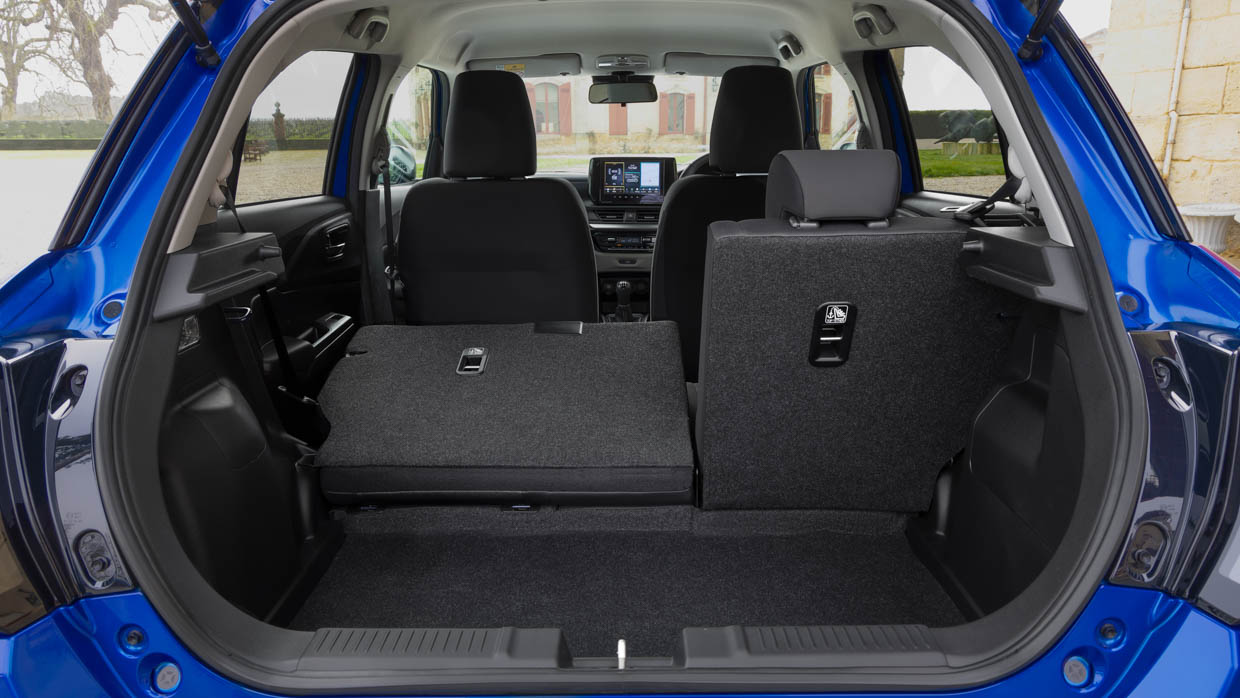
There are two sets of Isofix mounting points on the outboard rear seats, and three top tether anchorages. The rear seat is a 60/40 split-fold and while the seats themselves fold flat, there’s a notable lip.
The new Swift has no spare wheel at all, which is a bit disappointing. A space-saver at the very least would be nice. The car comes with a puncture repair kit and Suzuki would argue all its cars come with five years of included roadside assistance after purchase. If you get a flat, simply call a person to come take care of it for you.
What you lose in a spare wheel you gain in boot space – 265 litres, an increase of 23 litres on the old Swift. It’s a small boot by any standard but reasonable for this size of car.
One thing we found surprising about the interior is the vanity mirrors in the front are unilluminated – not great for putting on make-up if it’s dark. Also slightly annoyingly, despite the keyless entry and start, opening the fuel filler flap must be done manually using a little lever in the interior, which is very 1990s.
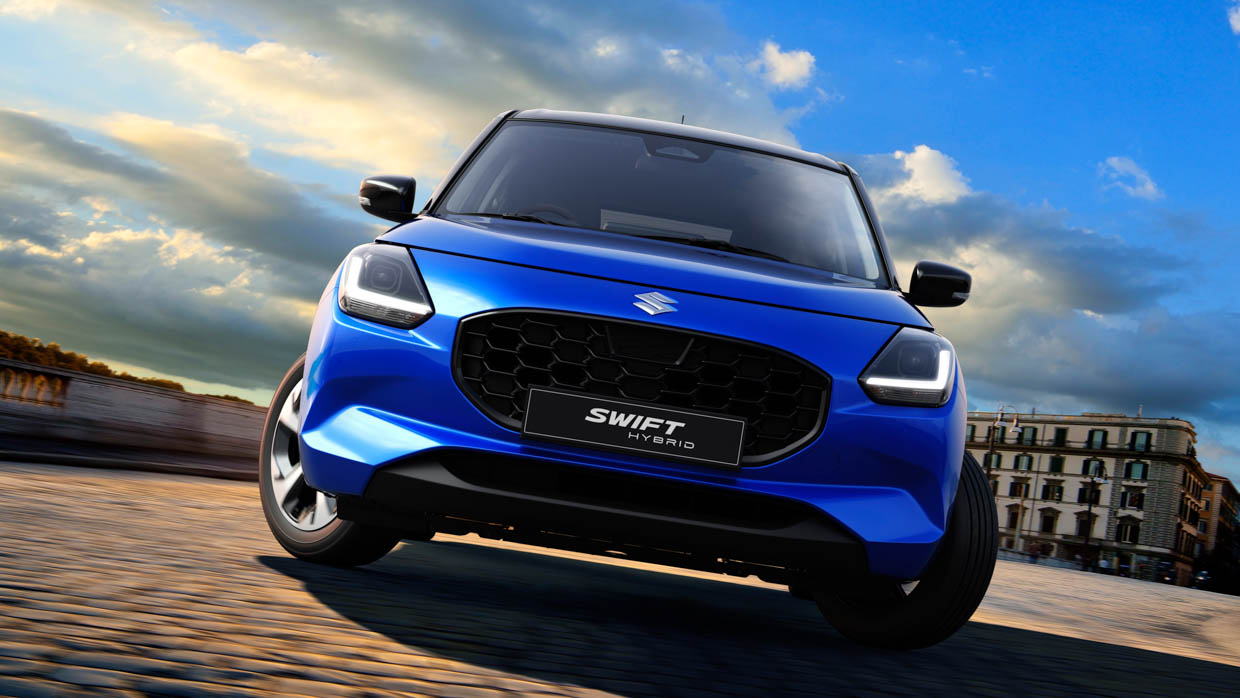
The new Swift Hybrid ought to be quite a safe car, although it has not yet been crash-tested by the local Australasian New Car Assessment Program (ANCAP). The previous model scored five stars when tested in 2017.
That said, this new-generation Swift scored four out of five stars when crash-tested by the Japan New Car Assessment Program (JNCAP) earlier this year.
Suzuki has equipped even the base model new Swift with a reasonable amount of modern standard safety equipment, including:
To get some safety equipment you need to step up to the Plus, which adds:
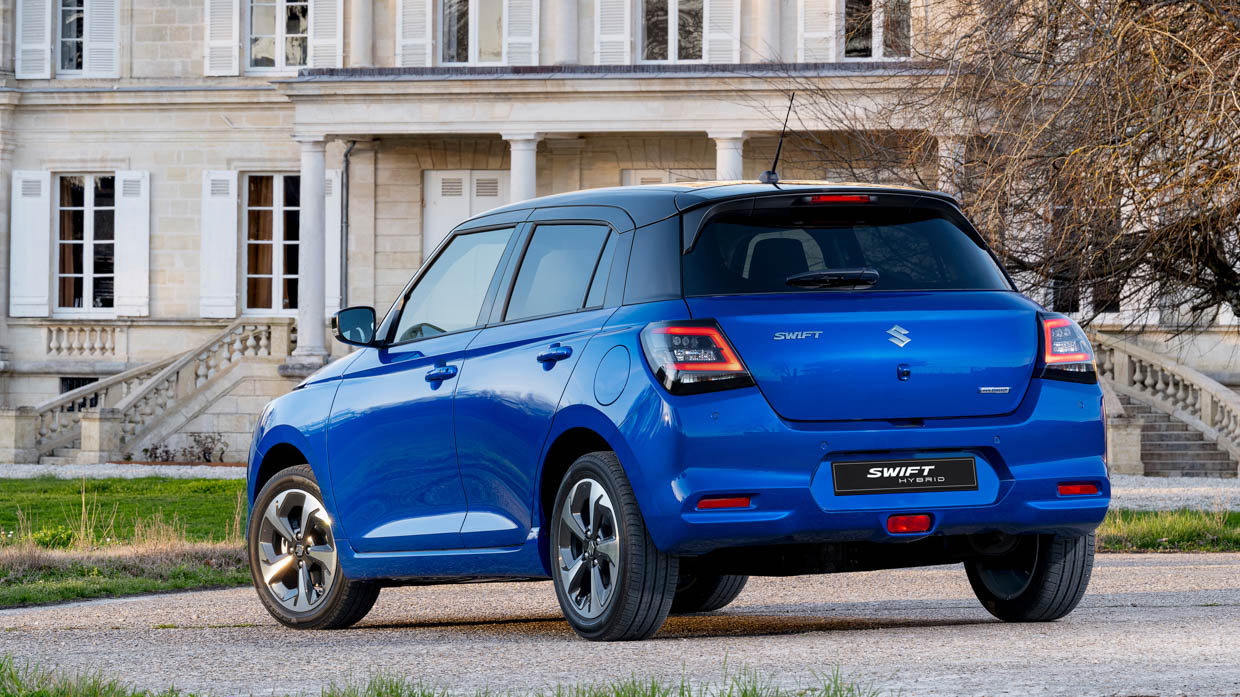
The Swift does not come with a driver fatigue or attention monitor, something that’s becoming increasingly common in new vehicles. It does not come with reverse autonomous emergency braking despite the reversing sensors, which is a pity.
We found the Swift’s adaptive cruise control to be well calibrated, and its active lane-keeping to track reasonably confidently in the centre of the lane. It’s a tick from us in that sense.
The Swift would be very cheap to own. Suzuki claims efficiency of 3.8L/100km for the manual and 4.0L/100km for the automatic. On our urban test loop in an automatic GLX we recorded average real world fuel economy of 5.0L/100km.
That said, the Swift requires 95-octane fuel, not the cheaper 91-rated stuff like many other budget-minded cars will run on.
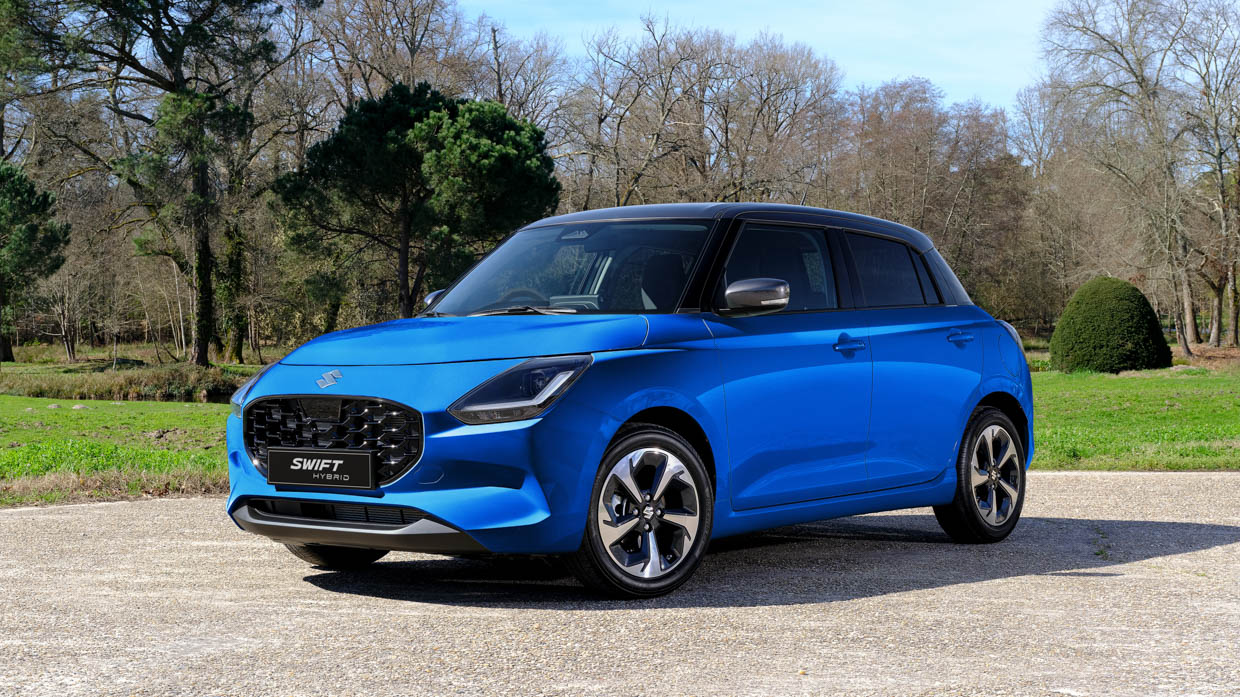
Service intervals are every 15,000km or 12 months, which is pretty good. Servicing costs are $1955 over five years, which is a bit expensive.
Suzuki includes a five-year, unlimited-kilometre warranty, which is about industry standard.
The new Swift deserves to do well and not just because small cars make an abundance of sense in 2024. This is a good little car, with impressive fuel economy.
That’s even if its interior, even in top-spec GLX trim, is clearly built to a price.
Refinement is also average, while calling it a “Hybrid” so prominently might lead some customers to equate it with an actual proper hybrid vehicle rather than the very lightly electro-assisted petrol car that it is.
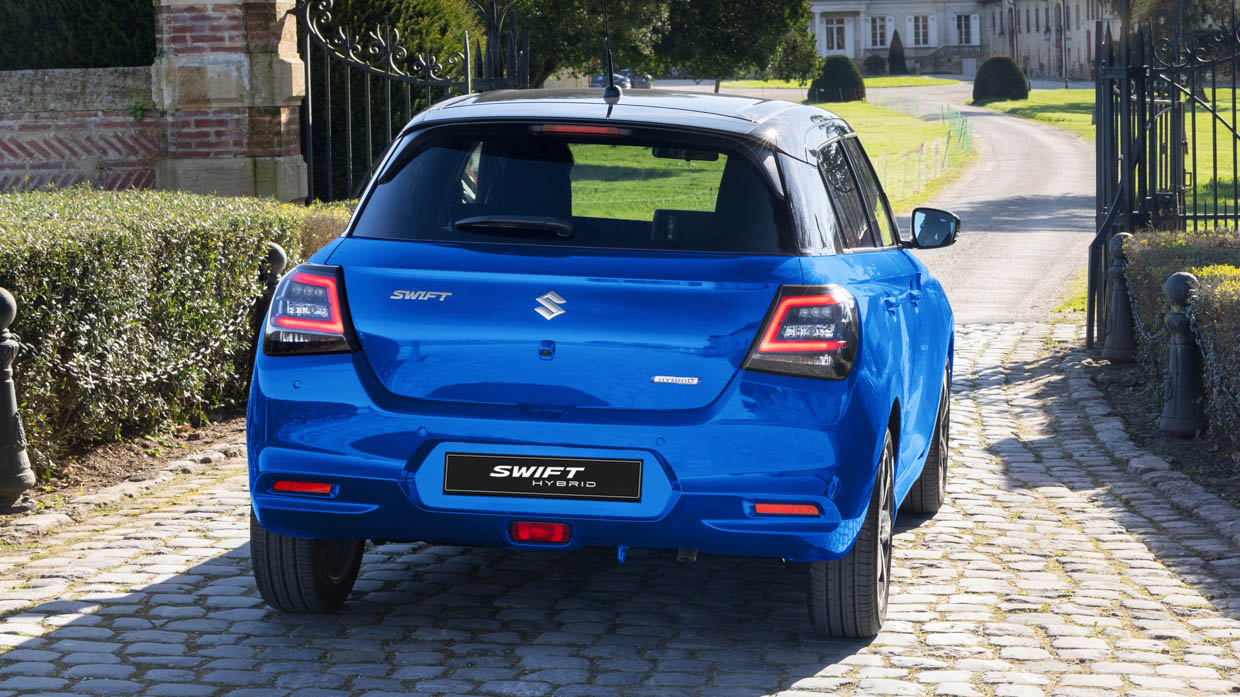
Further, the Suzuki Swift Hybrid is one car that’s getting the wooden spoon at the traffic light grand prix. But this is hardly a deal-breaker.
That all said, the price is very much right. A direct comparison with the new MG3 will be fascinating. For the longest time, many would buy an MG3 on price alone, but that can no longer be the case.
And while it might seem the little Suzuki is the more appealing package, a direct comparison will answer which of the two that Chasing Cars recommends as the finer urban runabout. Stay tuned.
About Chasing cars
Chasing Cars reviews are 100% independent.
Because we are powered by Budget Direct Insurance, we don’t receive advertising or sales revenue from car manufacturers.
We’re truly independent – giving you Australia’s best car reviews.
The estimate provided does not take into account your personal circumstances but is intended to give a general indication of the cost of insurance, in order to obtain a complete quote, please visit www.budgetdirect.com.au. Estimate includes 15%^ online discount.
^Conditions Apply
Budget Direct Insurance arranged by Auto & General Services Pty Ltd ACN 003 617 909(AGS) AFSL 241 411, for and on behalf of the insurer, Auto & General Insurance Company Limited(ABN 42 111 586 353, AFSL 285 571).Because we don’t know your financial needs, we can’t advise you if this insurance will suit you. You should consider your needs and the Product Disclosure Statement before making a decision to buy insurance. Terms and conditions apply.
Indicative quote based on assumptions including postcode , 40 year old male with no offences, licence suspensions or claims in the last 5 years, a NCD Rating 1 and no younger drivers listed. White car, driven up to 10,000kms a year, unfinanced, with no modifications, factory options and/or non-standard accessories, private use only and garaged at night.
^Online Discounts Terms & Conditions
1. Discounts apply to the premium paid for a new Budget Direct Gold Comprehensive Car Insurance, Third Party Property Only or Third Party Property, Fire & Theft Insurance policy initiated online on or after 29 March 2017. Discounts do not apply to optional Roadside Assistance.
2. Discounts do not apply to any renewal offer of insurance.
3. Discounts only apply to the insurance portion of the premium. Discounts are applied before government charges, taxes, levies and fees, including instalment processing fees (as applicable). The full extent of discounts may therefore be impacted.
4. We reserve the right to change the offer without notice.